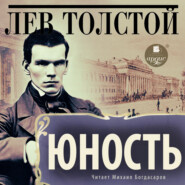По всем вопросам обращайтесь на: info@litportal.ru
(©) 2003-2025.
✖
Sevastopol
Настройки чтения
Размер шрифта
Высота строк
Поля
The sky was clear and dark; the stars, and the fires of the bombs in incessant movement and discharges, were gleaming brilliantly through the gloom. The large white building of the battery, and the beginning of the bridge stood out in the darkness. Literally, every second several discharges of artillery and explosions, following each other in quick succession or occurring simultaneously, shook the air with increasing thunder and distinctness. Through this roar, and as though repeating it, the melancholy dash of the waves was audible. A faint breeze was drawing in from the sea, and the air was heavy with moisture. The brothers stepped upon the bridge. A soldier struck his gun awkwardly against his arm, and shouted: —
“Who goes there?”
“A soldier.”
“The orders are not to let any one pass!”
“What of that! We have business! We must pass!”
“Ask the officer.”
The officer, who was drowsing as he sat on an anchor, rose up and gave the order to let them pass.
“You can go that way, but not this. Where are you driving to, all in a heap!” he cried to the transport wagons piled high with gabions, which had clustered about the entrance.
As they descended to the first pontoon, the brothers encountered soldiers who were coming thence, and talking loudly.
“If he has received his ammunition money, then he has squared his accounts in full – that's what it is!”
“Eh, brothers!” said another voice, “when you get over on the Severnaya you will see the world, by heavens! The air is entirely different.”
“You may say more!” said the first speaker. “A cursed shell flew in there the other day, and it tore the legs off of two sailors, so that…”
The brothers traversed the first pontoon, while waiting for the wagon, and halted on the second, which was already flooded with water in parts. The breeze, which had seemed weak inland, was very powerful here, and came in gusts; the bridge swayed to and fro, and the waves, beating noisily against the beams, and tearing at the cables and anchors, flooded the planks. At the right the gloomily hostile sea roared and darkled, as it lay separated by an interminable level black line from the starry horizon, which was light gray in its gleam; lights flashed afar on the enemy's fleet; on the left towered the black masts of one of our vessels, and the waves could be heard as they beat against her hull; a steamer was visible, as it moved noisily and swiftly from the Severnaya.
The flash of a bomb, as it burst near it, illuminated for a moment the lofty heaps of gabions on the deck, two men who were standing on it, and the white foam and the spurts of greenish waves, as the steamer ploughed through them. On the edge of the bridge, with his legs dangling in the water, sat a man in his shirt-sleeves, who was repairing something connected with the bridge. In front, over Sevastopol, floated the same fires, and the terrible sounds grew louder and louder. A wave rolled in from the sea, flowed over the right side of the bridge, and wet Volodya's feet; two soldiers passed them, dragging their feet through the water. Something suddenly burst with a crash and lighted up the bridge ahead of them, the wagon driving over it, and a man on horseback. The splinters fell into the waves with a hiss, and sent up the water in splashes.
“Ah, Mikhaïlo Semyónitch!” said the rider, stopping, reining in his horse in front of the elder Kozeltzoff, “have you fully recovered already?”
“As you see. Whither is God taking you?”
“To the Severnaya, for cartridges; I am on my way to the adjutant of the regiment … we expect an assault to-morrow, at any hour.”
“And where is Martzoff?”
“He lost a leg yesterday; he was in the town, asleep in his room… Perhaps you know it?”
“The regiment is in the fifth bastion, isn't it?”
“Yes; it has taken the place of the M – regiment. Go to the field-hospital; some of our men are there, and they will show you the way.”
“Well, and are my quarters on the Morskaya still intact?”
“Why, my good fellow, they were smashed to bits long ago by the bombs. You will not recognize Sevastopol now; there's not a single woman there now, nor any inns nor music; the last establishment took its departure yesterday. It has become horribly dismal there now… Farewell!”
And the officer rode on his way at a trot.
All at once, Volodya became terribly frightened; it seemed to him as though a cannon-ball or a splinter of bomb would fly in their direction, and strike him directly on the head. This damp darkness, all these sounds, especially the angry splashing of the waves, seemed to be saying to him that he ought not to go any farther, that nothing good awaited him yonder, that he would never again set foot on the ground upon this side of the bay, that he must turn about at once, and flee somewhere or other, as far as possible from this terrible haunt of death. “But perhaps it is too late now, everything is settled,” thought he, trembling partly at this thought and partly because the water had soaked through his boots and wet his feet.
Volodya heaved a deep sigh, and went a little apart from his brother.
“Lord, will they kill me – me in particular? Lord, have mercy on me!” said he, in a whisper, and he crossed himself.
“Come, Volodya, let us go on!” said the elder brother, when their little cart had driven upon the bridge. “Did you see that bomb?”
On the bridge, the brothers met wagons filled with the wounded, with gabions, and one loaded with furniture, which was driven by a woman. On the further side no one detained them.
Clinging instinctively to the walls of the Nikolaevsky battery, the brothers listened in silence to the noise of the bombs, exploding overhead, and to the roar of the fragments, showering down from above, and came to that spot in the battery where the image was. There they learned that the fifth light battery, to which Volodya had been assigned, was stationed on the Korabelnaya, and they decided that he should go, in spite of the danger, and pass the night with the elder in the fifth bastion, and that he should from there join his battery the next day. They turned into the corridor, stepping over the legs of the sleeping soldiers, who were lying all along the walls of the battery, and at last they arrived at the place where the wounded were attended to.
X
As they entered the first room, surrounded with cots on which lay the wounded, and permeated with that frightful and disgusting hospital odor, they met two Sisters of Mercy, who were coming to meet them.
One woman, of fifty, with black eyes, and a stern expression of countenance, was carrying bandages and lint, and was giving strict orders to a young fellow, an assistant surgeon, who was following her; the other, a very pretty girl of twenty, with a pale and delicate little fair face, gazed in an amiably helpless way from beneath her white cap, held her hands in the pockets of her apron, as she walked beside the elder woman, and seemed to be afraid to quit her side.
Kozeltzoff addressed to them the question whether they knew where Martzoff was – the man whose leg had been torn off on the day before.
“He belonged to the P – regiment, did he not?” inquired the elder. “Is he a relative of yours?”
“No, a comrade.”
“Show them the way,” said she, in French, to the young sister. “Here, this way,” and she approached a wounded man, in company with the assistant.
“Come along; what are you staring at?” said Kozeltzoff to Volodya, who, with uplifted eyebrows and somewhat suffering expression of countenance, could not tear himself away, but continued to stare at the wounded. “Come, let us go.”
Volodya went off with his brother, still continuing to gaze about him, however, and repeating unconsciously: —
“Ah, my God! Ah, my God!”
“He has probably not been here long?” inquired the sister of Kozeltzoff, pointing at Volodya, who, groaning and sighing, followed them through the corridor.
“He has but just arrived.”
The pretty little sister glanced at Volodya, and suddenly burst out crying. “My God! my God! when will there be an end to all this?” she said, with the accents of despair. They entered the officer's hut. Martzoff was lying on his back, with his muscular arms, bare to the elbow, thrown over his head, and with the expression on his yellow face of a man who is clenching his teeth in order to keep from shrieking with pain. His whole leg, in its stocking, was thrust outside the coverlet, and it could be seen how he was twitching his toes convulsively inside it.
“Well, how goes it, how do you feel?” asked the sister, raising his bald head with her slender, delicate fingers, on one of which Volodya noticed a gold ring, and arranging his pillow. “Here are some of your comrades come to inquire after you.”
“Badly, of course,” he answered, angrily. “Let me alone! it's all right,” – the toes in his stocking moved more rapidly than ever. “How do you do? What is your name? Excuse me,” he said, turning to Kozeltzoff… “Ah, yes, I beg your pardon! one forgets everything here,” he said, when the latter had mentioned his name. “You and I lived together,” he added, without the slightest expression of pleasure, glancing interrogatively at Volodya.
“This is my brother, who has just arrived from Petersburg to-day.”
“Hm! Here I have finished my service,” he said, with a frown. “Ah, how painful it is!.. The best thing would be a speedy end.”
He drew up his leg, and covered his face with his hands, continuing to move his toes with redoubled swiftness.
“You must leave him,” said the sister, in a whisper, while the tears stood in her eyes; “he is in a very bad state.”
The brothers had already decided on the north side to go to the fifth bastion; but, on emerging from the Nikolaevsky battery, they seemed to have come to a tacit understanding not to subject themselves to unnecessary danger, and, without discussing the subject, they determined to go their ways separately.

















